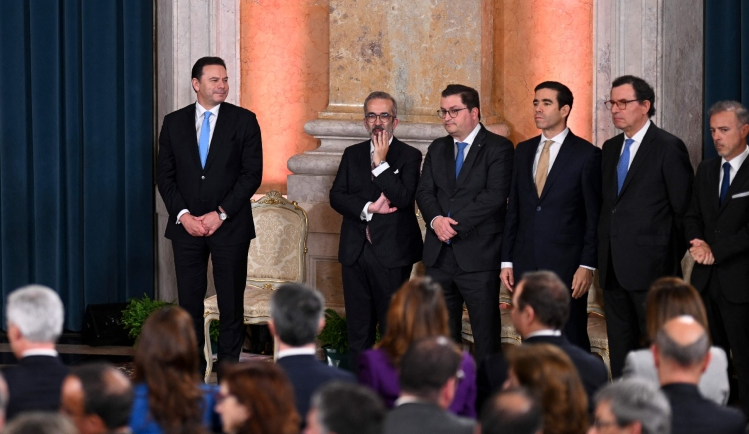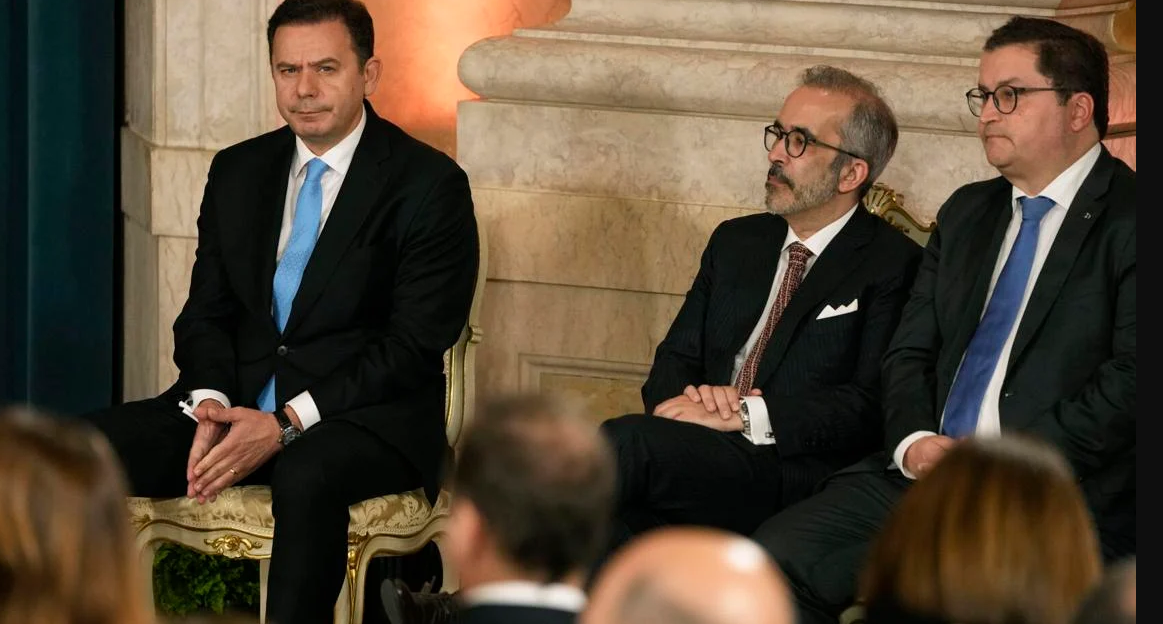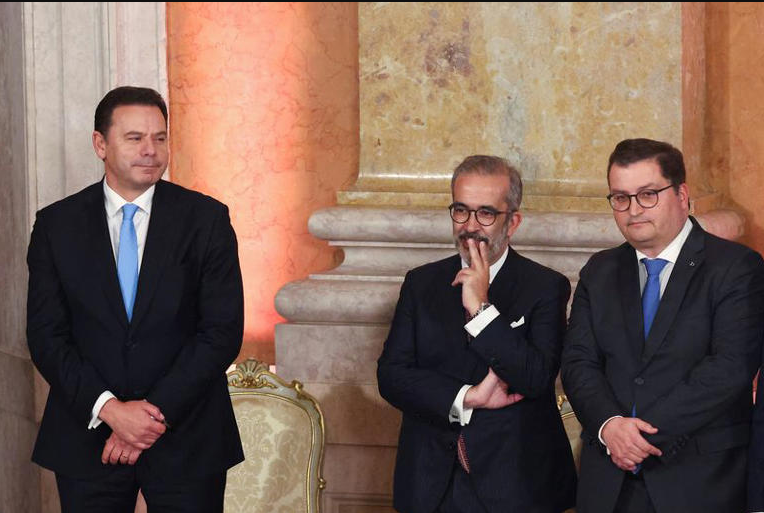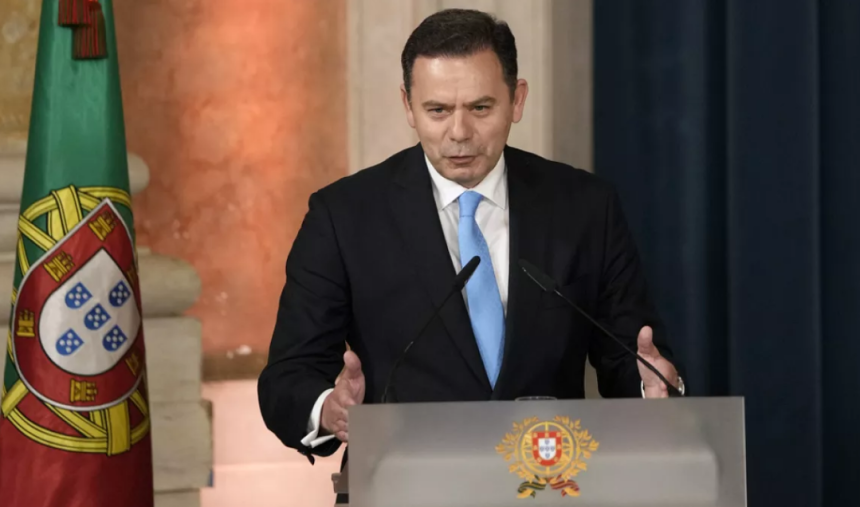Recently, the New Portuguese Government Inaugurated was a real thing. So, you might wonder what this means for immigration, especially for expats, digital nomads, and retirees looking to relocate to Portugal. In this guide, we’ll share everything that has happened since the New Portuguese Government’s Inaugurated.
Portugal’s center-right minority government of Prime Minister Luis Montenegro was sworn in on Tuesday, April 2 in Lisbon. This came amid doubts that it could survive beyond this year facing the most fragmented parliament in 50 years.
Plus the Democratic Alliance (AD) coalition won the March 10 election by only a slim margin over the outgoing Socialist Party (PS).
Nevertheless, Montenegro stated that the government would do all it takes to govern for four and a half years. He also promised to act with “humility, patriotic spirit, and the capacity for dialogue”. One more component of his speech that has drawn attention is his process to “lower corporate tax from 21% to 15% over the next three years.

New Portuguese Government Inaugurated
Officially appointed, were the Prime Minister, Mr Liu’s Montenegro, AD and PSDs president, and his 17 Ministers as the new Portuguese Constitutional Government. That was the 24th government since the country’s Carnation Revolution which ended the dictatorship back on the 25th of April 1974.
The new government was born on the 10th of March 2024 snap elections called by the President of the Republic, Mr Marcelo Rebelo de Sousa on the 15th of January 2024, when he officially dissolved the Parliament and the government. The election also came after the previous Prime Minister, Mr Anthonio from PS (Socialist Party) tendered his resignation on the 7th of November 2023. Mr. Anthonio Costa resided following a raid by the police amid an influence-peddling probe.
AD’s government will be the third President Sousa will inaugurate since he took office in 2016.
Besides Mr Luis Montenegro, the other 17 Ministers inaugurated include:
- Minister of State and for Foreign Affairs – Mr. Paulo Rangel
- Minister of State and for Finances – Mr. Joaquim Miranda Sarmento
- Minister for Presidency – Mr. António Leitão Amaro
- Deputy Minister of Territorial Cohesion – Mr. Manuel Castro Almeida
- Minister in the Cabinet of the Prime Minister and for Parliamentary Affairs – Mr. Pedro Duarte
- Minister for National Defence – Mr. Nuno Melo
- Minister for Justice – Mrs. Rita Júdice
- Minister for Home Affairs – Mrs. Margarida Blasco
- Minister for Education, Science and Innovation – Mr. Fernando Alexandre
- Minister for Health – Mrs. Ana Paula Martins
- Minister for Infrastructure and Housing – Mr. Miguel Pinto Luz
- Minister for Economy – Mr. Pedro Reis
- Minister for Labour, Solidarity, and Social Security – Mrs. Maria do Rosário Palma Ramalho
- Minister of Environment and Energy – Mrs. Maria da Graça Carvalho
- Minister of Youth and Modernisation – Mrs. Margarida Balseiro Lopes
- Minister of Agriculture and Fisheries – Mr. José Manuel Fernandes
- Minister for Culture – Mrs. Dalila Rodrigues

Instability in Political Sway
It is noteworthy that the AD has 80 seats in the 230-seat legislature. Therefore, the AD will require the support of either the far-right Chega party, which quadrupled in parliamentary representation to 50 lawmakers, or the center-left PS, which has 78 seats to pass any legislature. Montenegro’s Democratic Alliance coalition needed to secure 116 seats to form a majority in the Parliament.
This is why experts like Andre Feiree, a Political Scientist at the ISCTE research university while speaking to Reuters, said that there are slim chances of political stability within the government and even higher chances of fierce opposition from a stronger ultra-right.
AD (Democratic Alliance), is a center-right coalition that supports the free market and pro-investment. Many economic philosophies held by AD, makes Portugal attractive for citizens and residents alike.
However, the far-right Chega party is an anti-immigration party whose accelerating increase shows a political tilt towards right-wing populism across Europe. And Chega has demanded a government role or long-term agreement to support AD.
Still, Montenegro has repeatedly refused to negotiate.
A good example is the last week of March, when Chega rejected Montenegro’s candidate for parliamentary speaker, who was ultimately elected with PS’s help. It happened that the Chega party promised and made good on its promise to upset the old way of doing things by rejecting Montenegro’s candidate. Chega Leader Andre Ventura wanted AD to join his party in the right-of-center parliamentary alliance. Such an alliance would create an overall majority and place Chega at the heart of power. Montenegro refused and instead struck a deal with PS, the party’s traditional rival for a speaker named by each party to serve two-year terms.
However, PS, warned that such support is one-off and shouldn’t be counted on again.
That said, Montenegro has said that his plans for Portugal range from tax reductions for families and companies to wage hikes for teachers, police, and doctors, and higher pensions. He could do so, through parliament but the opposition’s support is vital to achieving these objectives.
Historically, there’s been a failure to approve a budget which resulted in early elections in Portugal. That said, experts predict that AD may have to negotiate the majority of its measures with PS. Much depends on such negotiations towards the future of Portugal.

New Government Four-Year Executive Plan
On the 10th of April 2024, the Portuguese Government released its new 4-Year Executive plan acknowledging the policies it intends to address within the Legislature. The 4-year plan puts the needs of Portuguese society at the forefront while emphasizing inclusivity and collaboration. Here are some highlights affecting immigration to Portugal:
- Portugal continues to keep a ‘welcome’ approach to all individuals seeking Residency in Portugal. Concerning the paragraph ‘Attract skilled immigration by encouraging qualified individuals to address Portugal’s demographic and workforce needs’, the document goes on about the topic of immigration explaining that it would ensure a regulated immigration policy guaranteeing immigrants in Portugal their fundamental rights.
- Based on AD’s political campaign, the new Executive plan also states that it’s bringing back to the table discussions about reintroducing the Portugal Golden visa, especially the real estate option. The real estate arm of the Portugal Golden Visa was previously discontinued under the previous Socialist Party-led government.
- The Non-Habitual Residency (NHR) regime is also up for revision to balance attracting foreign residents with ensuring national equality through significant tax reductions for both immigrants and citizens.
- According to the new executive plan, the government also intends to make provisions for affordable housing in both rental and ownership markets. It aims to do this by providing better collaboration between businesses, banks, and property owners, with options for leaseback on properties.
- The document also had a paragraph dedicated to the controversial “Mais Habitacao”, the same law that discontinued the Real Estate option for the Golden visa. The document explains that the Government plans to repeal regulations concerning forced leasing, rent freezes, and punitive measures against local accommodation.
- The plan also included paragraphs for introducing new policies for the Tourism sector such as “immediately eliminate the Extraordinary Contribution on Local Accommodation, the expiration of licenses predating the More Housing program, and concurrently review the legal limitations imposed by the previous Socialist government.”
- The government also plans to clarify investment rules for real estate and attract investment for both residents and non-residents by making room for compromise in the Real estate sector focused on the tourism industry.
Beyond that, Montenegro’s immediate to-do list includes quickly addressing shortcomings in public healthcare, especially long waiting lists for treatment, a housing crisis, and resolving simmering disputes with teachers and police over pay and work conditions.
Concluding Thoughts on the New Portuguese Government Inaugurated.
Looking at all these, the new Portuguese government has positive plans for immigrants. However, this would require firm negotiations with the other opposition parties to enable passing the right legislative measures into law. Hence, at the time, Portugal is favorable to expats, remote workers, retirees, and everyone else looking to relocate here. However, depending on the visa option you wish to pick, consider speaking to an expert. That way you can pick the right visa with immense benefits for you.






